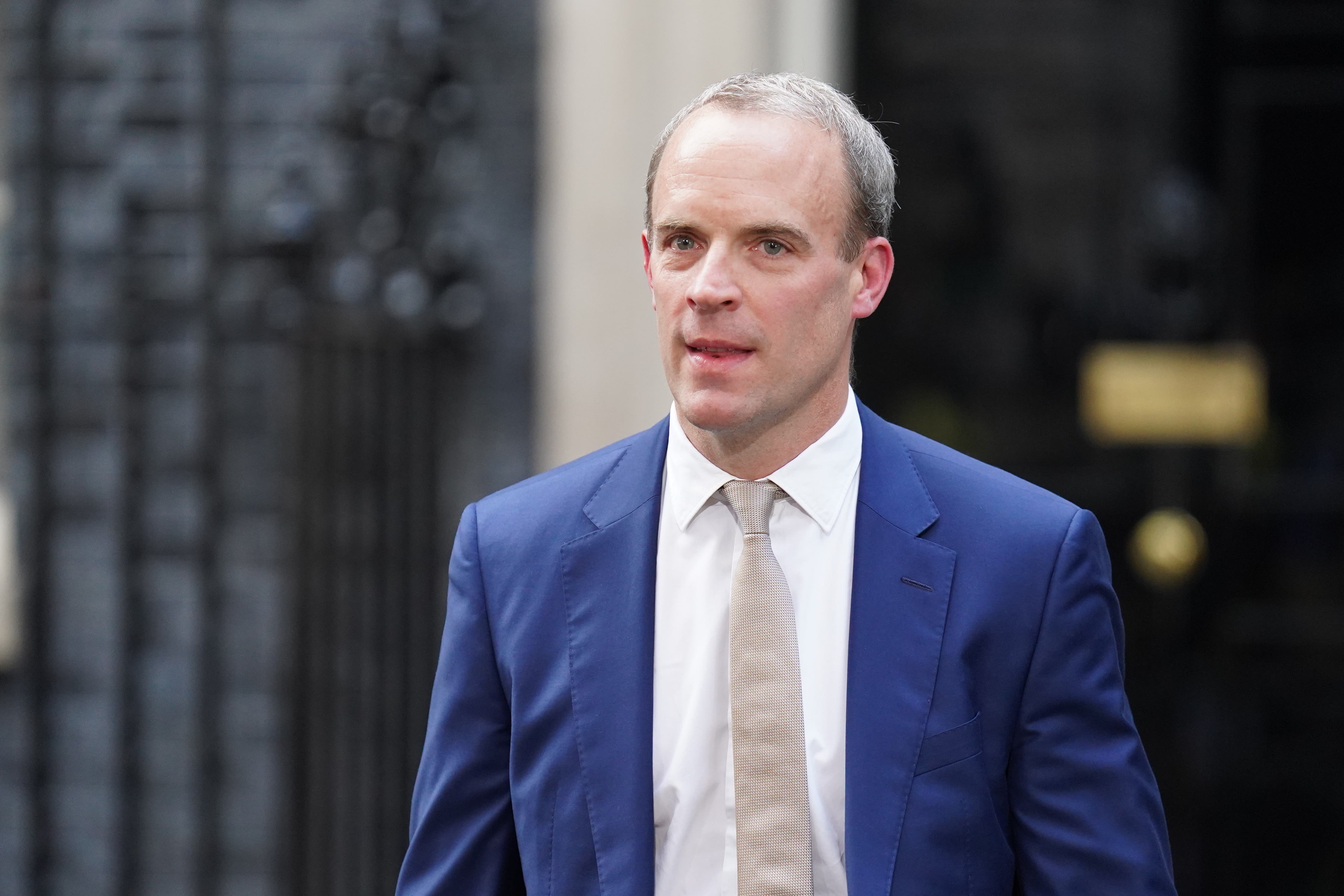Dominic Raab’s changes to open prison conditions ‘making public less safe’, Parole Board chief says
Reforms made without consultation mean serious criminals are being released ‘without crucial testing’

Your support helps us to tell the story
From reproductive rights to climate change to Big Tech, The Independent is on the ground when the story is developing. Whether it's investigating the financials of Elon Musk's pro-Trump PAC or producing our latest documentary, 'The A Word', which shines a light on the American women fighting for reproductive rights, we know how important it is to parse out the facts from the messaging.
At such a critical moment in US history, we need reporters on the ground. Your donation allows us to keep sending journalists to speak to both sides of the story.
The Independent is trusted by Americans across the entire political spectrum. And unlike many other quality news outlets, we choose not to lock Americans out of our reporting and analysis with paywalls. We believe quality journalism should be available to everyone, paid for by those who can afford it.
Your support makes all the difference.Dominic Raab’s decision to put fewer inmates into open prisons before they are released is making the public less safe, the head of the Parole Board has warned.
Chief executive Martin Jones said that changes introduced last year mean that people are being freed “without crucial testing” in conditions where they are allowed controlled access to employment, education and the local community.
“When a prisoner is afforded a successful period in open conditions it makes the public safer and increases the chance that the individual can succeed on release by their gradual reintegration back into society,” he wrote in a document published by the Prison Reform Trust.
“So it is hard not to be concerned that since June 2022, the secretary of state [Mr Raab] has chosen not even to seek the board’s advice in a much higher proportion of cases, and his officials have chosen not to take our advice in nearly nine out of every 10 cases where we have recommended a progressive move to open conditions.”
Mr Jones said that in the past, the Parole Board’s recommendations had “almost always” been accepted, but the position had flipped since a higher bar for transfer to open conditions was introduced without consultation in June.
The Parole Board chief said the shift will “inevitably lead to some people being released without crucial testing”, while others stay in custody for longer than necessary.
He issued the warning days after The Independent revealed that one person is killed every three days on average by an offender on probation in England and Wales.
The litany of errors leading up to the murder of Zara Aleena by serial offender Jordan McSweeney has shone a spotlight on dangerous gaps in the monitoring of people leaving prison.
McSweeney’s release was not considered by the Parole Board because he was wrongly categorised as a medium, rather than high, risk prisoner and his previous burglary offence did not qualify for an indeterminate sentence.
Mr Jones said the Parole Board was “very cautious in its decision making”, with only a quarter of people considered for release freed every year and under one in 200 convicted of a serious further offence.
“We should not shy away from telling victims and the public why and how we make our robust decisions,” he warned, saying that previous governments had sought to downgrade political influence in release decisions, basing them on “evidence and the law” rather than handing more power to ministers.
But the current government is drawing up new laws expected to give the justice secretary power to review and refuse release decisions made by the Parole Board.
Peter Dawson, director of the Prison Reform Trust, said: “The Parole Board’s advice — proven over many years to be both cautious and reliable — is now either not sought or ignored … the cumulative effect of these changes is to make release an unfairly distant prospect for a growing number of prisoners, regardless of the progress they make over the many years set aside as punishment.”
The Ministry of Justice had hailed the reforms, saying they enabled Mr Raab to block moves to open prisons unless inmates “can demonstrably pass a tough three-step test, including proving they are highly unlikely to abscond; that the move is essential for them to work towards future release; and the move would not undermine public confidence in the wider criminal justice system”



Join our commenting forum
Join thought-provoking conversations, follow other Independent readers and see their replies
Comments